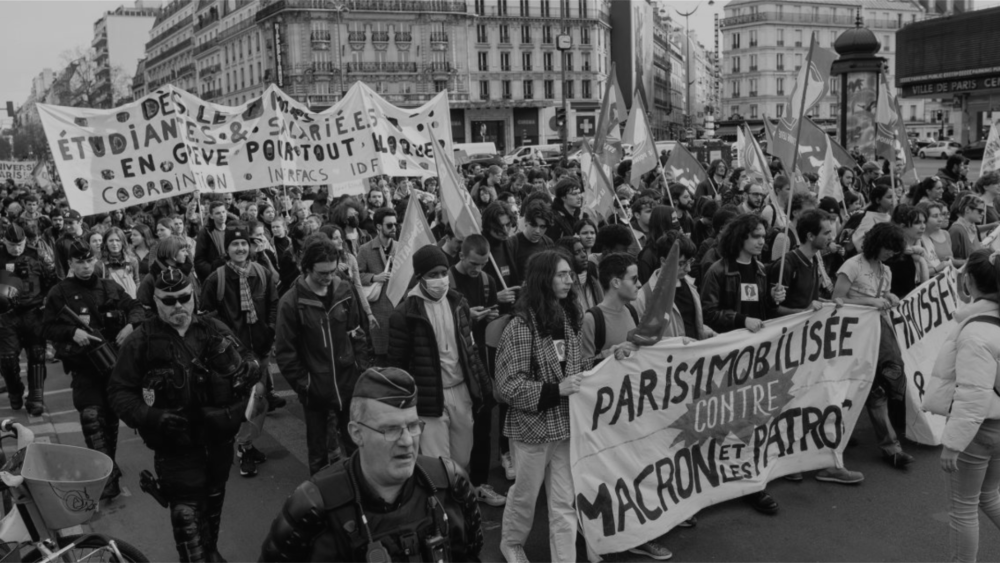Macron has shown his contempt for the public, once again proving that we are living in a time of “democracy” without the “demos”
President Emmanuel Macron and his government have wanted to reform the French pension system since his first term, which began in 2017. An initial attempt in 2020 was later shelved in response to widespread protests and the Covid-19 pandemic.
In January of this year, the government began a second attempt at pension reform, this time focusing on increasing the retirement age from 62 to 64 years. Since the council of ministers adopted the project on 23 January, trade unions, opposition parties and the public have expressed strong opposition.
There have been weekly strikes and protests organised by trade unions and other groups to prevent the law from passing. Most notably two mass mobilisations on 31 January and 7 March that were called by several trade unions. The call-to-action for the 31st brought 2.8 million to the streets, according to the General Confederation of Labour (CGT). Protests and mobilizations continued, and 7 March saw historic participation, with more than 300 separate protests involving 3.5 million, according to organisers.
The reform is deeply unpopular across the population, with polls showing 80% of French people opposed to it and only 16% in favour. Between 68% and 72% of the public supports the protests. According to a poll published by Le Parisien, a whopping 93% of working-age adults responding were against an increase in the age limit for retirement.
So, it was within this environment that the government managed to pass the law in the French Senate on the morning of the 16 March, with 193 senators in favour and 114 against. The Senate is the upper chamber of the French parliament, with members indirectly elected, and it has been traditionally right-wing since the late 1950s. Members of the lower house, the National Assembly, are elected by direct universal ballot.
The government made a decision on that same afternoon to bypass the National Assembly, and proceed to adopt the reform proposal, by invoking the controversial article 49.3 of the Constitution. This article allows the government to bypass the lower house, in exchange for allowing the opposition to table a motion of no confidence against it. Macron has tried to justify this hubristic move by claiming that the “financial risks are too big”.
The anger, which had been brewing for weeks, has now erupted, as protestors took to the streets that same evening, and police violence ensued in the streets of Paris on the night of the 16th. Macron has shown his contempt for the public, once again proving that we are living in a time of “democracy” without the “demos”. And, this week, nowhere in Europe was this more visible than in France.
Defne Dalkara is a member of DiEM25’s Coordinating Collective
Do you want to be informed of DiEM25's actions? Sign up here










